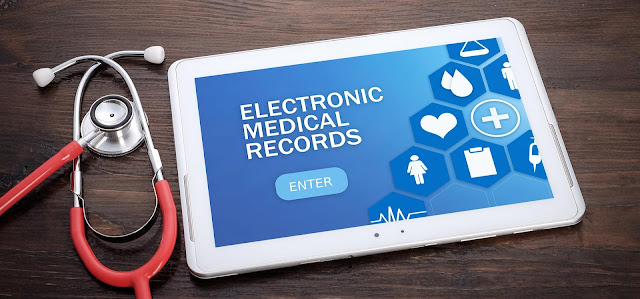Electronic Medical Records: Transforming Healthcare Documentation
In the rapidly evolving landscape of healthcare, the integration of technology has brought about significant advancements in various aspects of medical practice. One such innovation that has revolutionized healthcare documentation is the Electronic Medical Record (EMR) system. An electronic repository of patient medical information, the EMR has replaced traditional paper-based records, paving the way for enhanced patient care, streamlined workflows, and improved overall efficiency within healthcare facilities.
Gone are the days of
deciphering illegible handwriting and flipping through stacks of patient files.
With electronic medical records, healthcare providers now have instant access
to comprehensive patient information at their fingertips. This digitalization
of medical records has eliminated the risks associated with lost or misplaced
files, ensuring that critical patient data is securely stored and readily
available when needed.
One of the primary
benefits of Electronic
Medical Records lies in their ability to improve patient safety and
care quality. Electronic records allow for accurate and up-to-date
documentation of medical history, diagnoses, medications, allergies, and
treatment plans. This comprehensive overview enables healthcare professionals
to make well-informed decisions, minimize medication errors, and coordinate
care seamlessly across different healthcare settings. In emergency situations,
immediate access to patient records can be a matter of life or death, and EMRs
provide this vital information promptly, saving valuable time and improving
patient outcomes.
EMRs also enhance
communication and collaboration among healthcare providers. With these systems,
multiple healthcare professionals can access and update patient records
simultaneously, regardless of their physical location. This real-time data
sharing facilitates better coordination between different specialties, leading
to more coordinated and comprehensive patient care. Furthermore, the electronic
format of EMRs enables the integration of decision support tools, such as
alerts for potential drug interactions or reminders for preventive screenings,
further augmenting clinical decision-making.
Efficiency gains are
another significant advantage of electronic medical records. By eliminating
manual tasks such as filing, searching, and transcribing, healthcare providers
can focus more on direct patient care. Automated features like electronic
prescriptions and lab orders streamline the workflow, reducing administrative
burden and enhancing overall productivity. In addition, EMRs enable data
analytics and reporting, providing valuable insights into population health
trends, treatment outcomes, and resource allocation, which can inform
evidence-based practice and healthcare policy decisions.
While the benefits of
EMRs are evident, their implementation and adoption are not without challenges.
Healthcare organizations need to ensure robust security measures to safeguard
patient data against breaches or unauthorized access. Additionally, training
and support for healthcare professionals transitioning from paper-based systems
to EMRs are crucial to maximize the benefits and minimize potential disruptions
in workflow during the transition period.
Electronic
Medical Records have transformed healthcare
documentation, ushering in a new era of efficiency, patient safety, and
collaborative care. The digitization of medical records offers numerous
advantages, including improved access to patient information, enhanced
communication among healthcare providers, and increased operational efficiency.
As technology continues to advance, the potential for further integration of
EMRs with artificial intelligence, telemedicine, and other innovations holds
promise for even greater advancements in healthcare delivery.




Comments
Post a Comment